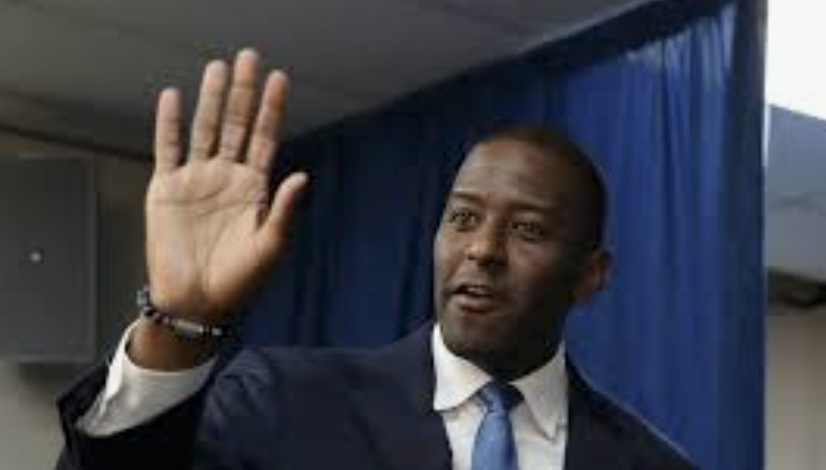Florida will sabotage its own success with Gillum as governor

Have the good people of Florida lost their minds? As New Yorkers watch friends and family flee to the “Sunshine State,” seeking relief from crushing taxes that will only get worse, we have to wonder: How could Florida voters even think of changing their winning game?
Do they really want to elect a progressive governor who promises to raise taxes, bust the state budget and drive businesses to other states?
Consider:
- In its annual poll, CNBC ranked Florida the 10th-best state in the country in which to do business;
- Florida was the fifth-fastest growing state in the union last year;
- Florida is among the five lowest-taxed states in the country.
- Unemployment in Florida in September was an astonishing 3.5 percent, lower than the country’s 3.7 percent;
- By contrast, New York state unemployment is 4.1 percent, and the number of government workers is rising.
Nowhere in the country do voters face a starker choice between the pro-growth agenda of President Trump and the high tax, anti-business policies of the progressive left than in Florida.
On Nov. 6, Floridians will elect a new governor, choosing between Rep. Ron de Santis (R-Fla.), a decorated Navy veteran who just recently resigned his seat in Congress, and Tallahassee Mayor Andrew Gillum, the Democratic candidate.
At the moment, Gillum is up by almost 6 points in the average of Real Clear Politics polls.
On his website, De Santis focuses on jobs and education. He promises to “attract new industries and high-paying jobs by keeping taxes low and reducing bureaucracy.” He also supports revising the state’s constitution to require a two-thirds vote by the legislature in order to raise taxes.
On education, De Santis vows to give parents more control over their kids’ schooling and expand the availability of vocational and technical training.
Florida’s K-12 overall education system ranks 40th in the country; it ranks 43rd in high school graduation rates. That performance is in spite of spending more per student than Idaho, for instance, which ranks 25th. Something needs to change.
Gillum does admit the need to “strengthen our public schools” and has pledged to spend an extra $1 billion of taxpayer money to do it. But in the same breathe, he vows to “end the culture of high-stakes testing.”
In other words, he wants to follow the lead of other blue states where public schools are shamefully failing low-income, minority kids by blaming the tests.
That posture, of course, wins him the backing of local teachers unions, which are pouring hundreds of thousands of dollars into his campaign, thrilled to see the school budget go up and accountability go down. It isn’t just local unions who are backing Gillum; the American Federation of Teachers has also ponied up for his PAC.
Other big donors to Gillum’s campaign include liberal activist George Soros and Collective Future, an organization dedicated to electing progressive black officials that counts Soros among its largest contributors.
Gillum also endorses “Medicare for All” and on his website states that “he will always ensure Florida is a welcoming and safe place for everyone, no matter where they come from, who they love or how they identify.”
In other words, Gillum is a typical 2018-style progressive, putting unrealistic economic priorities and identity politics at the top of his agenda, while also vowing to abolish ICE and promising to impeach the president.
To pay for his education program, Gillum is pledging to raise Florida’s taxes by $1 billion, effectively jeopardizing the state’s enviable low-tax status.
In particular, he proposes raising the corporate tax from 5.5 percent to 7.75 percent. Democrats like to fund their various missions, like bolstering their standing with teachers unions and other government employees, by raising corporate taxes.
They portray the business community as rich and heartless and imagine that such levies won’t eventually pound households as well. It is, of course, a myth. Businesses either push increased taxes onto consumers in the form of higher prices or, failing that, they pack up and head for states with a more favorable climate in which to make money.
Either way, state residents end up paying the price for Democrat politicians’ generosity.
Gillum surprised politicos by winning the primary race to run for governor. His candidacy has been tarnished by a long-simmering FBI investigation into corruption in Tallahassee that had received little national attention until he started to campaign in earnest.
Though Gillum himself has not been singled out as a target of the probe, his former campaign manager Adam Corey has been named in a subpoena.
DeSantis reminds voters that under his GOP predecessor, Rick Scott, who is running for the Senate, employment in Florida grew 20.3 percent, compared to the country’s 12.5 percent growth. He promises to continue Scott’s pro-business and low-tax legacy.
The Census Bureau estimates that Florida’s population grew by 328,000 in the year ending July 2017; New York, by comparison, had virtually no growth. Moreover, in each of the past two years, New York suffered new domestic migration losses of about 190,000 people, by far the worst in the country.
In a speech last month to the Business Council of New York State, Democratic Governor Andrew Cuomo blamed the exodus on bad weather, rather than bad economic policies.
Folks in Florida should wise up. Their state is prospering, partly because of the sunshine, to be sure. But it is also growing because many people like the state’s low taxes and pro-business climate. Electing a governor hell-bent on changing that environment could end up costing voters dearly.
Published on The Hill




